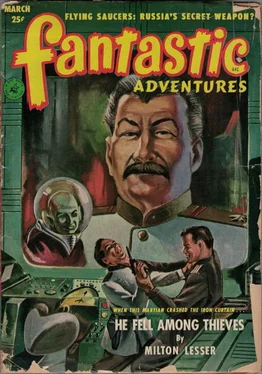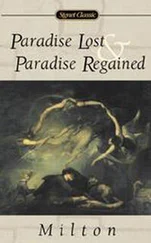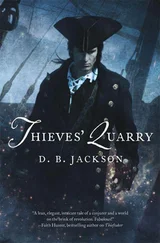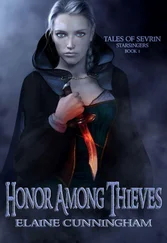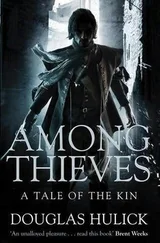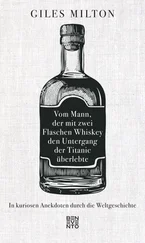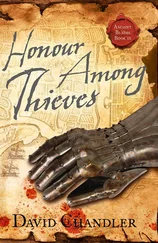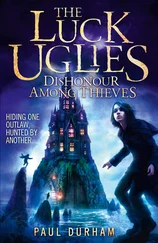Milton Lesser
HE FELL AMONG THIEVES

The little green man was bewildered. This was a world he couldn’t comprehend

NICK SKINNER buried his parachute just outside the city of Pinsk, which lies well within the Pripet Marshes, deep in Russian-occupied Poland and not a hundred miles from the Soviet border.
His mouth was very dry and his palms clammy, and for a moment he listened as the plane droned away overhead. From the direction of Pinsk, a big anti-aircraft searchlight stabbed up half-heartedly through the dense fog. When the drone of the engine faded away, so did the light.
And Skinner was alone.
The Pripet Marshes sprawl like a rotting carcass over the Russo-Polish frontier, dank and noisome, alive with the eerie night sounds of swampland. Soviet country…
Half a thousand miles to the West was the other side of the Iron Curtain, and safety. But Skinner knew it might be a long time before he could hightail it in that direction. Maybe never…
Me, Nick Skinner, he thought. Captain in the C.I.A. And because my mother was once a dark-eyed Russian beauty, because we had spoken the language of the Tsars as much as English in my Weehauken childhood, I was the man for the job.
Bedding down as well as he might in the inky night of the Pripet, Skinner found it hard to believe that the glistening halls of the Pentagon lay only forty-eight hours behind him. But that’s the way you had to work in the Central Intelligence Agency. Quickly, so quickly, that there isn’t time for anything to leak out.
Skinner could remember the grave, serious faces as they ushered him into the office of the five-star general. A tall man with a lined, work-weary face, the general had come right to the point. “Skinner,” he said, “what do you know about Russia?”
Skinner could remember the grave, general put him at his ease. He shrugged. “Not, a great deal, sir. I speak the language like a native. My mother came over right after their revolution in 1918. But I’ve never been closer to Soviet territory than a good-will tour in Czechoslovakia. They took some of us on that right after the war, before they started to get unpleasant.”
The general laughed softly. “All-right. You speak the language well, and that’s important! What part of Russia did your mother come from?”
“Tula, I think. Large town a couple of hundred miles south of Moscow. I’m almost sure it was Tula, General. My mother’s dead now.”
“Tula it, is then. That’ll be your home town, Skinner.”
“What?”
“Simple. Your identification papers will show you’re a native of Tula, one Nikolay Mironov. Occupation: transient worker. You see. Skinner, you’re going to Russia. You leave right after we’re finished here, as soon as they can give you the proper clothing.”
Skinner said he thought the general was joking.
BUT THE older man shook his head, making a bridge of his hands, interlacing the fingers and peering over them at Skinner. “Hardly. Skinner, do you know anything about Russia’s ability to produce, atomic weapons?”
“No, sir. Just what I read, that’s all. We know they set off at least one atomic bomb about two of three years ago. We know they’re hunting up uranium ores furiously—”
“They’re not! Up until a few months ago your account would have been perfectly correct. But doesn’t it
strike you as odd that they contented
themselves with merely that one explosion? Further, our underground contacts report a startling thing. The hubbub over uranium ores had died down completely inside the Iron Curtain. They extracted most of their uraninite in the Erz Mountains, where two rich veins meet at a town in Czechoslovakia called Joachimsthal. The town is now deserted, Skinner! For some reason, or reasons, the Reds have apparently lost all interest in the manufacture of atomic weapons.
“You’re going to Russia to find out why. We’ve got to know. Skinner. You figure it out: maybe, just maybe, the balance of power is still in our favor because of superiority on atomic weapons. And that’s holding the war-hungry Soviets on a mighty slim leash. Now they scoff at atomics….”
Skinner stood up. “Does Intelligence draw any conclusions?”
“Of course. The only conclusion we can draw. The Reds have something else, Skinner. They must have. Some secret weapon so utterly powerful they can forget all about their work with atomics. Frankly, Skinner, we’re afraid. And we’re sending you to find out what it’s all about. That is, if you’ll go….”
Skinner’s heart pounded furiously under his ribs, and his fingers trembled slightly when they took the drink the general offered. He even forgot to be surprised that liquor was present at these secret meetings, and he didn’t answer until he’d taken three stiff shots of bourbon. “Hell,” he said. “You don’t have to ask me. I’m in the C.I.A. and that’s that. You think I ought to go, and I’ll go. Don’t get me wrong. General. I’m no hero. But I didn’t enter this service to twiddle my thumbs. You got a job you think I can handle. I’ll go.”
After that, the General was apologetic. “There’s no plan, Skinner. Nothing. We don’t know enough of what’s going on to formulate one. You’ll be on your own, completely on your own. You’ve got to find that weapon—whatever it is that’s made the Russians throw their atomic preparations out the window. Then you’ve got to get that information back here. I’ll be frank, Skinner: I know a few people who’ll be surprised if you’re able to get back—with it.”
And that was that. Skinner could have no farewells, because you never knew when you’d say goodbye to the wrong person. He was clothed in a coarse wool shirt and a pair of denims. They gave him a .45 and enough ammunition to choke an elephant. They gave him identification papers, in Russian. Ration papers, travel papers, a transient’s visa, all in Russian. He wasn’t Nick Skinner any longer, he was Nikolay Mironov of Tula.
They didn’t waste any time. Before he knew it he was on a plane winging over the Atlantic, and a dozen hours later he stepped out in Occupied Germany. A lot of back-slapping there, and wishes of good luck; a good night’s sleep and a day at the Officer’s Club in Bonn.
He knew he’d not be dropped in Russia itself, because there was no organized underground movement there to get him started. Outside of Pinsk, instead, in Eastern Poland. After that—well, he might have to plod all the way across the Eurasian land mass and back again, on foot if necessary. And at the outset he didn’t have the slightest idea where to go. No one did….
NOW, IN the Pripet, he waited for dawn. It came slowly, with great masses of fog billowing in with the wind from Russia. A Polish refugee in Bonn had warned him to stay put until the fog lifted from the surface
of the swamp because the bogs and quagmires could be deadly.
By the time the sun began to make inroads, in the smoking white haze, he was hungry—and drenched. He set out along a muddy road which skirted stinking pools of muck that almost smacked of the tropics. The shoulder-holster of his .45 and the two cartridge belts chafed his skin under the denim shirt, but there was something comforting about their presence as he loosened each of the buckles a notch.
He found the two-lane highway which led to Pinsk, turned East upon it. The way led to Pinsk—and to Russia.
Читать дальше
